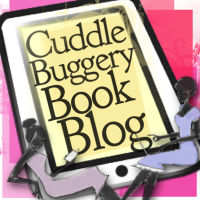Publisher: HarperCollins
Pages: 441
Publication Date: February 1, 2011
Type: Hardcover, gift
Ninety-five days, and then I’ll be safe.
I wonder whether the procedure will hurt.
I want to get it over with.
It’s hard to be patient.
It’s hard not to be afraid while I’m still uncured, though so far the deliria hasn’t touched me yet.
Still, I worry.
They say that in the old days, love drove people to madness.
The deadliest of all deadly things: It kills you both when you have it and when you don’t.
*~*~*~*~*~*~*~*~*~*~*~*~*~*~*~*~*~*~*~*~*~*~*~*~*~*~
When I first started, I wasn't entirely sure what I'd think of this. The reviews were incredibly mixed; some friends swore it was the most fantastic thing they'd ever set eyes upon, and some swore that Lauren Oliver was milking the dystopian genre for the money and should return to contemporary. But one thing that nearly all agreed on was the writing. The writing, they said, is absolutely gorgeous. So I, someone who absolutely adores beautiful writing, should at least enjoy that. Right?
Not entirely. The writing was certainly my favorite part of the novel; it was gorgeous, lyrical and lovely and with at the very least an attempt at depth. For a while, all was well. But after a bit, it just became a bit too much. The plot would constantly be interrupted for a random, several-paragraph-long deep revelation or metaphor that Lena had stumbled upon. I appreciate Oliver's attempt at giving this novel real meaning and doing her best to make it beautiful, but when this beautiful deep lovely stuff is getting in the way of my plot (and occurring every few pages) even I start to get annoyed.
Sadly, that was the least of my problems. I'm not quite sure where to begin, so I'm just going to list them.
The world. I'm sure, if you've read any of this book's reviews, you have already seen this subject taken and beaten to death. Honestly, I don't have much to add. The world was completely and utterly nonsensical. For one, the US has sealed its borders. Yeah. Sealed its borders. And . . . how exactly does that work? Considering there seems to be very little communication between even the cities of America and technology has not advanced the slightest bit, how the hell are little cities like Portland still surviving? I cannot think of a single explanation for this.
But more importantly, the basic concept of this book. A world without love. A world where love is a disease. Where at eighteen you receive a "cure" that keeps you safe from the "deliria." How . . . does . . . just . . . no. As others have mentioned, I can understand choosing to remove all emotions. I can understand someone coming to the conclusion that we would be better if we simply did not feel. But identifying love--and only love--as a disease, and choosing to remove it? I cannot see how anyone could ever come to this conclusion, I cannot see how the entire country would ever acquiesce, and I cannot see how their current world functions without it. There is a reason evolution gave us a mothering instinct. If a mother does not care for her children, what is making her raise them? And even if she somehow does, how would she raise them right? If she has no feelings of lust or love and no desire for children, why would she procreate in the first place? If all children under eighteen still have normal emotion, regardless of the drivel being spat at them, why have they not risen up in protest? Considering just how many parts of the brain are involved in the different types of love, how the hell do you remove that without making a person catatonic?
I could go on, but frankly, I'd rather not. This world was just a huge logic fail. Even the impossibility aside, what about the improbability of general society being no different than it was over a century ago? By that I mean they have the same technology as us, they talk like us, have the same jobs as us. If we completely ignore the question of where they're getting this technology, why have they not advanced the slightest bit in any way?
With some dystopians, I have been able to ignore flimsy world-building, simply sit back and enjoy the ride. But the world of Delirium was so utterly ridiculous that I just could not ignore it.
My other huge problem with this novel is our main character. Lena. Oh, Lena. She tried so hard to be thoughtful and powerful and inspiring but was doomed to be the cause of massive headdesking. She was one of those protagonists. The kind that are, according to their own description, unexceptional in every way, and oh, how could anyone love them? But! Hark! A boy! He calls me beautiful? He calls me beautiful! I am beautiful! But only because of him. He makes me beautiful. Without him, I am plain. Without him, I am nothing.
DJGLDJ;LFEWJLFEWOI
No. Just. No. Not only does this girl say that "This is what life will be like without him: Everything will become ordinary again. I’ll become ordinary again." but she actually thinks, in the beginning, that the cures and pairings are obviously a good thing because if they weren't forced to no one would ever want to be with her.
Yup.
Also, this is yet another dystopian in which the girl needs the hot rebel boy to show her how truly flawed her word is. Because she couldn't come to this conclusion of her own volition. Pff! What blasphemy is this? Clearly girls need strong men to show them the light.
To be clear, I did not dislike Alex. I was actually quite fond of him. But I strongly disliked his relationship with Lena, along with wondering why he'd chosen someone like her when he could've had beautiful, passionate Hana. Aside from being the only thing that can solve Lena's self-confidence issues, Alex becomes the only thing . . . period. This is yet another book where the close friend gets shunted to the sidelines in favor of a boy the main character scarcely knows. While Hana didn't completely disappear, she certainly faded into the background for a good portion of the story. Hana, the only reason Lena has any kind of relationship with Alex in the first place.
To wrap up this ramble/rant/review, I am going to briefly mention the plot. Wait, plot? There was actually a plot? What is this magical thing called a plot and where can I find it?
Told you it'd be brief.
Finally, I will say that I'm a big fan of the ending. If there's one thing Oliver did right with this book, it was the ending. It would've been unrealistic for them to skip off happily into the sunset. The ending didn't seem like some cheap trick; it felt genuine, and I really appreciated that. The last few paragraphs were fantastic.
But sadly, they were not enough to save this book. Two stars for a few lovely quotes and a great ending. I will probably read Pandemonium, but it's safe to say I'll be wary.
Thursday, February 9, 2012
Subscribe to:
Post Comments (Atom)












8 comments:
I love it!! <3 agreed agreed.
I can tell we're going to agree on a lot of things, because I feel the exact same way that you did about this one. Wonderful review!
Gwen: If only it had been Alex/Hana. I feel like the book would've been 10x better.
Cecelia: Thank you!
YES O_o I really think so too.
Ick! I've seen so many mixed reviews I haven't had the courage to read this yet. I'm not sure about this "beautiful" writing either. I mean. This is a dystopian. Why do we need deep metaphors every 3 pages!? I may still give it a go but mostly because I'M so curious haha.
Great, honest review. I haven't yet read this, but I think I'll give it ago because I want to see what I think of it. I hope your next read is better than this one!
If you have time and if you want to, please drop by and enter my International Giveaway!
Very honest review. I bought this book a few months ago, but haven't read it yet. I'm not sure if I will like it or not. New follower.
Happy Valentine's Day at The Bucket List
Aw, I'm sorry this didn't work for you, Lexie. I agree it would have been a much stronger book if some of the points you expressed had been addressed, but overall, I liked it enough to give it 3 or 3.5, I think. Hope your next read is better!
Wendy @ ♥ The Midnight Garden ♥
Post a Comment